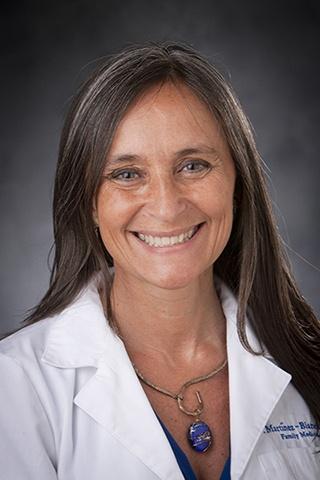Part Two: Viviana Martinez-Bianchi, M.D, FAAFP, program director:
May 19-23 found me busy in Geneva, Switzerland, as a member of the World Organization of Family Doctors (WONCA) delegation attending the World Health Assembly (WHA72). The Palais of the United Nations, was busy with people from over the world speaking the language of health and health care. NCDs and communicable diseases, infant, maternal and child health, mental health, access to vaccines, emergency preparedness, patient safety, palliative care, were once again being discussed in its many rooms, and resolutions voted on by the member states of the World Health Organization (WHO). Yet this year finds leaders of the world following the outcomes of the Declaration of Astana with a true awareness that what the world needs to improve health outcomes is for the majority of care to be delivered by primary health care (PHC), through the work of interdisciplinary teams, and that these teams need to be well trained, well organized, well supported and well-funded to succeed.

During our time in Geneva, we met with WHO officers and program directors working on universal health care and life course, health services delivery, health workforce development, mental health and substance abuse, disaster risk reduction, and disaster preparedness; and with regional directors from WPRO, PAHO, WHO AFRO. We met with non-state actors in collaboration with the World Health Organization, leaders in the International Council of Nurses, leaders of the International Federation of Medical Students Associations, member representatives of the Global Coalition for Circulatory Health, Primary Health Care Performance Initiative, and World Federation of Public Health Associations, among many others. We provided expert opinion on primary health care toward universal health coverage, emergency and trauma care, global action on patient safety, water, sanitation and hygiene in health care facilities.
On the first day, several WONCA leaders spoke at a side event hosted by the government of China, with a keynote address by Dr. Tedros Adhanom Ghebreyesus, WHO Director General. He said, “In Astana last year we came together and declared that primary health care is the foundation of strong health systems, and that strong health systems are the foundation of universal health coverage. … PHC drives forward equity, efficiency and effectiveness. … We need to be able to show our decisionmakers what all of us serving in health care know: that providing high-quality, sustainable care in the community — in other words, care for all at all ages — is the most efficient use of health spending.”
Dr. Tedros’ words resonated to my ears as the values of family medicine. During the same side event, I was asked to speak about the U.S. health care system, and I said:
“In the U.S., patient care delivered with a primary care orientation is associated with more effective, equitable, and efficient health services. Access to primary care lowers overall health care utilization, increases the use of preventive services, and lowers disease and death rates. The major specialty of primary care doctors in the U.S. is family medicine, accounting for 40% of the total primary care physician workforce, followed by general internal medicine and general pediatrics.
Family medicine organizations in the U.S. are building the primary health care workforce via the 25 x 30 initiative to ensure that by the year 2030, 25% of medical school seniors select family medicine as their specialty. Family medicine strengthens U.S. health care; my hope is that family medicine will strengthen health systems in every country in the world.”
I was also an invited speaker representing WONCA on an International Vaccination & UHC Capacity Workshop hosted by the American Federation of Public Health Associations, speaking about the role of family doctors in PHC, and our strategies and best practices to increase primary prevention through increased capacity applied to the context of vaccinations.
Much happened at WHAT72 that could turn the tide on the international support for strong PHC, but as Dr. Tedros said, “The ultimate measure of whether our work this week is successful is not whether we approve resolutions and decisions. The ultimate measure is whether those resolutions are translated into laws, policies, plans and programmes that make a difference on the ground. To our colleagues in Ministries of Health, I ask how you will work with your colleagues across government to invest in jobs. Do you have a clear picture of the needs in your country? Do you have a plan for how to address those needs? To our friends from professional associations and youth organizations, thank you for the productive discussions we have had over the past few months. Our task now is to implement the outcomes of those discussions to strengthen continuing medical education and build multidisciplinary teams of health workers to deliver high-quality, people-centred care. I call on all of us join forces across professions to move together, instead of in parallel. Invest in jobs for UHC. Ensure decent work and eliminate discrimination. Implement what works. Activate the power of youth. And harness technology to maximize impact.”
I am proud to be contributing to UHC through the collective work we do at Duke Health. I hope to continue to represent all of us at the international stage, mentor those who are interested in global, national and local advocacy, provide great care for people of diverse backgrounds, and strengthen the training of amazing residents and students at Duke Family Medicine and Community Health.
Read Part One: Clayton Cooper, MD, MBA, second-year resident
Viviana Martinez-Bianchi is program director of the Duke Family Medicine Residency Program. Email viviana.martinezbianchi@dm.duke.edu with questions.
Editor’s note: A member of the Duke Family Medicine Residency Program leadership team guest blogs every month. Blogs represent the opinion of the author, not the Duke Family Medicine Residency Program, the Department of Family Medicine and Community Health, or Duke University.
